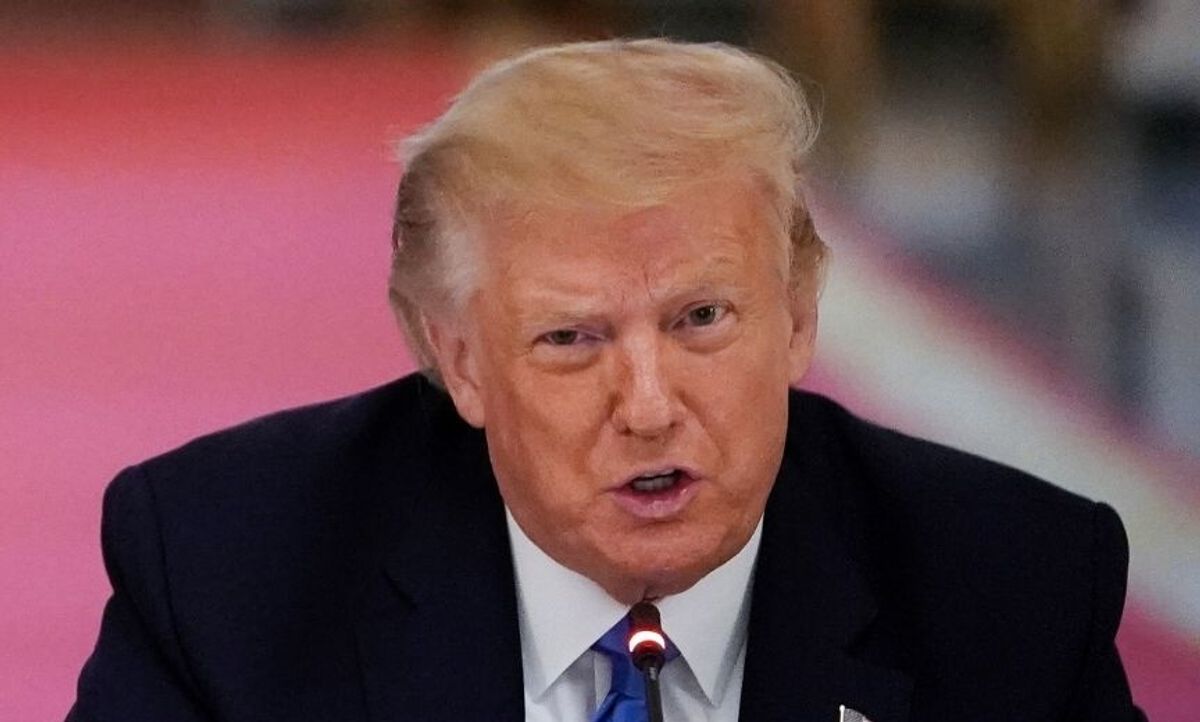bill press
Top stories
Columnist Imagines Scenario Where Trump Pardons Himself Before Leaving Office, and It's Not as Crazy as It Sounds
Numerous campaign officials, advisers, lawyers, and friends of President Donald Trump have faced criminal charges for their work with him—some of them haven't even been pardoned.
But due to a Trump Justice Department policy that the President of the United States cannot be indicted, Trump's potential involvement in these activities rarely comes under scrutiny and even when it does, the subpoenas and requests for records and testimony go unheeded.
The President shocked the nation recently when he commuted the sentence his longtime associate Roger Stone, who was convicted by a jury of his peers on five counts of lying to Congress, one count of witness tampering and one count of obstruction of a proceeding.
Stone is far from the only Trump ally the President has helped avoid prison time. In congruence with Trump's public statements, the Justice Department interceded to prevent prison time for Michael Flynn, dropping charges against him after he pleaded guilty to lying to the FBI. Trump also pardoned Sheriff Joe Arpaio, a vocal supporter of his, for contempt of court.
Now, a new op-ed from The Hill's Bill Press speculates that Trump's ultimate pardon may be for himself.
"Donald Trump pardons himself? Don’t laugh. Admit it. You know as well as I, that’s exactly where this whole clown… https://t.co/pfMwbsbsVK— The Hill (@The Hill) 1594745884.0
The author imagined an announcement like this:
"Jan. 20, 2021. EXCLUSIVE TO THE HILL: According to official documents obtained by our team of White House correspondents, President Trump's last official act as president, just minutes before leaving the White House to head directly for Mar-A-Lago, pointedly boycotting incoming President Joe Biden's Inauguration, was to issue one final presidential pardon.
In a brief written statement, Trump said, 'Under absolute powers bestowed on me as president under Article II of the Constitution, I am awarding a full prospective, presidential pardon to the person who has been the most unfairly investigated and persecuted by our corrupt system of justice: Donald J. Trump.'"
Does the idea seem absurd? Press didn't seem to think so, writing:
"A president pardoning himself? Don't laugh. While that issue's never been addressed by the Supreme Court, Trump's not the first one to think about it. He's already said Article II 'allows me to do whatever I want.' "
He goes on to point out that though there isn't precedent for a President pardoning himself, it's not unheard of for a President to pardon someone who hasn't been indicted or found guilty of a crime. After Nixon resigned in the wake of the Watergate scandal, President Gerald Ford pardoned Nixon for any crimes he "committed or may have committed" during his tenure in the White House.
Press continues:
"Most Americans don't understand that, for Donald Trump, the stakes here could not be higher. For him, what's at stake is much greater than simply losing the White House. What's at stake is losing his freedom. Trump knows that, with Joe Biden in the White House and his ability to hide under the cloak of presidential immunity no longer possible, he could well be indicted for crimes identified in the Mueller report and the House impeachment. His post-presidential days could be spent in prison, not on the golf course."
He goes on to say that Trump's strategy is to deny the legitimacy of the Russia investigation and any other investigations against him, to secure the silence of those who could provide damning information, and ultimately to pardon himself.
Trump, though claiming he did nothing wrong, asserted in 2018 that he had the "absolute right" to pardon himself.
As has been stated by numerous legal scholars, I have the absolute right to PARDON myself, but why would I do that… https://t.co/pB6MquREjZ— Donald J. Trump (@Donald J. Trump) 1528115725.0
To many Twitter users, the idea is scarily more plausible than it may seem at first glance.
Reminder: If the Michael Flynn conviction stays in tact - and it could now, with the court of appeals considering a… https://t.co/jt9gX9ScXc— Elie Honig (@Elie Honig) 1594464705.0
@thehill @TheHillOpinion Very possible. Certainly wouldn’t be surprised. For sure his need for attention men’s he w… https://t.co/ZrEnsqrvNl— Leonard Decant (@Leonard Decant) 1594747300.0
@thehill @TheHillOpinion Yup. He's a clown, and corrupt— Snarky Tomato, RN (@Snarky Tomato, RN) 1594745920.0
Will trump try to pardon himself if/when he loses the election???— IamCanadian🇨🇦 (@IamCanadian🇨🇦) 1594570244.0
I hope everyone is ready for when Trump pardons himself for all federal crimes on his way out of the White House. F… https://t.co/wtMvoFcWAb— Keith Boykin (@Keith Boykin) 1594429869.0
But since Trump faces litigation in states like New York—and pardons can only apply to federal law—some pointed out that crimes brought to light by state charges would likely stand.
@thehill @TheHillOpinion but he can never pardon himself from NY crimes. Yeah!!!— pkapauline (@pkapauline) 1594746026.0
@thehill @TheHillOpinion He can't pardon himself for crimes in NY.— Jim (@Jim) 1594752116.0
Only time—and an election—will tell what happens to Trump when he leaves the White House.
 SECONDNEXUS
SECONDNEXUS percolately
percolately georgetakei
georgetakei comicsands
comicsands George's Reads
George's Reads





